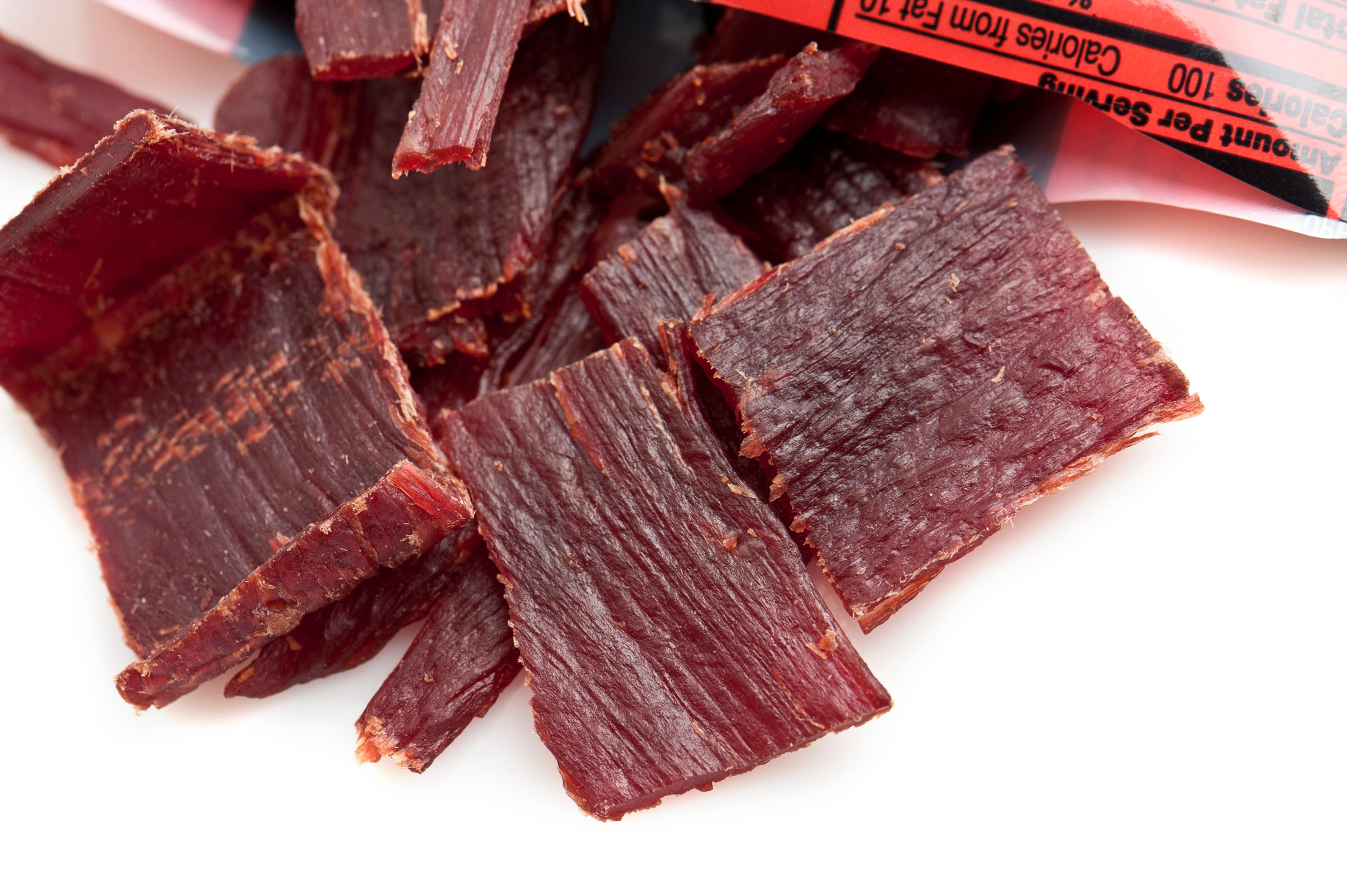Is Beef Jerky Healthy?

Lauren Coin
| 3 min read

Beef jerky is a popular snack option for road trips, long hikes and busy days on the go. While it’s convenient and packed with protein, you may wonder if it’s actually healthy.
Learn more about what beef jerky is made of, as well as the potential health benefits and drawbacks.
What is beef jerky?
Beef jerky is made of slices of dehydrated red meat that have been marinated and seasoned. It may be cured or uncured, smoked or air or oven dried, according to the U.S Department of Agriculture. This preserved meat typically comes from a lean cut of beef but can also be made from chopped or ground beef that has been formed into strips.
Per the USDA Food Database, one ounce (28 grams) of standard, original beef jerky contains approximately:
- 80 calories
- 11 grams of protein
- 1 gram of fat
- 6 grams of carbohydrates
- 6 grams of sugar
- 460 milligrams of sodium
- 25 milligrams of cholesterol
The exact nutrient profile varies depending on how the beef jerky was made. Different types of beef, drying techniques, flavoring and marinade can all affect its nutritional value.
Benefits of beef jerky
One of the biggest health benefits to beef jerky is that it’s rich in protein. Protein is essential for many of the body’s functions, such as building muscle, bone strength and supporting a healthy immune system, according to Harvard Health.
Beef naturally contains essential vitamins and minerals, such as iron, zinc, magnesium and vitamin B12, which help support immune function, metabolism and red blood cell production. According to a 2022 study in the National Library of Medicine, dried beef jerky provides these key benefits.
Beef jerky is a shelf-stable item and can last much longer than fresh meat, making this portable snack an easy way to consume protein and vitamins.
Drawbacks of beef jerky
While dried jerky can provide some health benefits, there are also drawbacks.
Most notably, beef jerky is very high in sodium levels. One ounce of standard beef jerky contains 19% daily value of sodium.
These high sodium levels are due to salt added during the drying process to draw out moisture and extend the shelf life. Salt may also be used to enhance the flavor or texture of the dried meat.
Consuming an excess of sodium can contribute to bloating, increased thirst and high blood pressure, according to the Cleveland Clinic.
Beef jerky also contains cholesterol and saturated fats, which can increase heart disease risk, per the Cleveland Clinic. People with hypertension, heart disease or kidney issues should consider low or no sodium options of this snack.
Most storebought beef jerky options are considered processed meats. The World Health Organization deemed processed meats a Group 1 carcinogen, which means there is sufficient evidence that it can cause cancer in humans. Specifically, excess processed meat intake is associated with an increased risk of colorectal cancer. A landmark study found that every 50-gram serving of processed meat increased colorectal cancer risk by 18 percent.
How much beef jerky should I eat?
Beef jerky can be a good way to add necessary protein, vitamins and minerals to your diet; however, it’s best to consume it in moderation and opt for less processed meats. Make sure your diet is also balanced with a mix of fruits, vegetables, legumes and whole grains.
Photo credit: Getty Images
Related:





